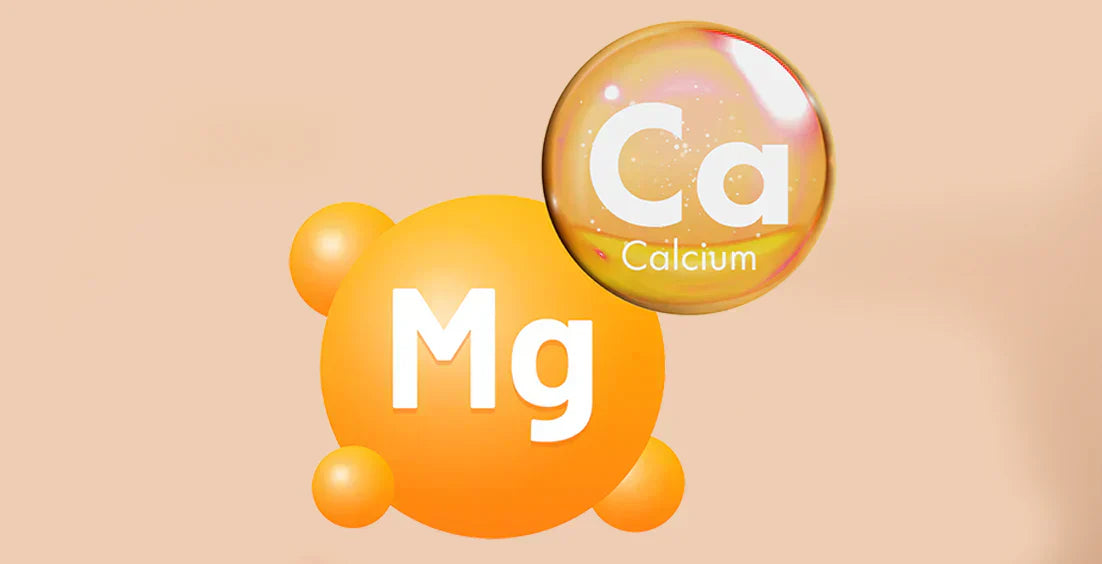Calcium And Magnesium Together: Why It’s Essential To Combine The Two Supplements
Unlock the benefits of calcium and magnesium together for better sleep, stronger bones, muscle relaxation, and improved heart health and energy levels.

Popular Stories
References
- Association of magnesium intake with sleep duration and sleep quality: findings from the CARDIA study https://pmc.ncbi.nlm.nih.gov/articles/PMC8996025/
- Calcium https://www.ncbi.nlm.nih.gov/books/NBK109827/
- Calcium, micronutrients and physical activity to maximize bone mass during growth https://www.fao.org/4/w7336t/w7336t07.htm
- Calcium Ion in Skeletal Muscle: Its Crucial Role for Muscle Function, Plasticity, and Disease https://journals.physiology.org/doi/full/10.1152/physrev.2000.80.3.1215
- Calcium https://medlineplus.gov/calcium.html
- Calcium signal communication in the central nervous system https://pubmed.ncbi.nlm.nih.gov/15093130/
- Calcium in biology https://en.wikipedia.org/wiki/Calcium_in_biology
- Why Magnesium Matters https://www.nm.org/healthbeat/healthy-tips/nutrition/Why-Magnesium-Matters
- Magnesium and Human Health: Perspectives and Research Directions https://pmc.ncbi.nlm.nih.gov/articles/PMC5926493/
- The Role of Magnesium in Neurological Disorders https://pmc.ncbi.nlm.nih.gov/articles/PMC6024559/
- Magnesium and your health https://www.healthdirect.gov.au/magnesium
- Role of magnesium in genomic stability https://pubmed.ncbi.nlm.nih.gov/11295157/
- Vitamins and minerals https://www.betterhealth.vic.gov.au/health/healthyliving/Vitamins-and-minerals#magnesium
- Role of Magnesium in Vitamin D Activation and Function https://pubmed.ncbi.nlm.nih.gov/29480918/
- Potassium, Magnesium, and Calcium: Their Role in Both the Cause and Treatment of Hypertension https://pmc.ncbi.nlm.nih.gov/articles/PMC8109864/



 Skin Detoxification Bundle
Skin Detoxification Bundle Complete Weight Loss Bundle
Complete Weight Loss Bundle Heart Care Bundle
Heart Care Bundle Better Immunity Bundle
Better Immunity Bundle  Men's Immunity & Prostate Health Bundle
Men's Immunity & Prostate Health Bundle Stress + Energy + Wellness Combo
Stress + Energy + Wellness Combo  Energy Booster Combo
Energy Booster Combo Natural Skin Care Bundle
Natural Skin Care Bundle Workout Supplements Combo
Workout Supplements Combo Cognitive Health & Vision Combo
Cognitive Health & Vision Combo Joint Health Support Combo
Joint Health Support Combo



































